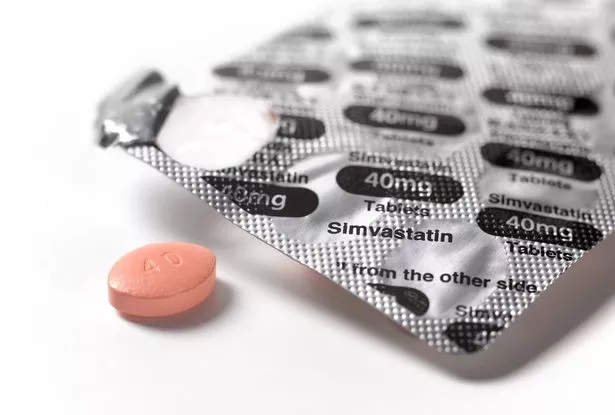Deborah Grayson, a pharmacist with 13 years of experience, has issued a stark warning about seven common pills and creams she would “never” use herselfCally Brooks Features Writer and Laura Lyne Reporter
04:00, 26 Nov 2025
 A pharmacist taking inventory of medications on the shelves of a pharmacy.
A pharmacist taking inventory of medications on the shelves of a pharmacy.
We rely on them to banish our headaches, unblock our stuffy noses, and send us off to dreamland.
However, according to one experienced pharmacist, some of the most sought-after products lurking in your medicine cupboard could actually be causing more damage than relief. Deborah Grayson, a pharmacist boasting 13 years in the field, has delivered a chilling warning regarding seven widespread tablets and ointments she would “never” touch herself.
Her concerns span from the danger of frightening “zombie-like” drowsiness to the possibility of developing a dependency that could leave you in a worse state than before you began. Below are the seven medications on her avoid-at-all-costs list and her suggested alternatives.
1. Codeine
Obtainable without prescription in weaker doses when mixed with paracetamol, Codeine stands as a potent opioid pain reliever. Yet for Deborah, the addiction dangers far exceed any advantages, reports the Mirror.
“Opiate painkillers are all converted to morphine in the body and act on opiate receptors to dull the pain response,” she told the Daily Mail. “Many of them also produce a warm and fuzzy feeling, often referred to as a buzz.”
The substitute involves paracetamol or ibuprofen for gentle to moderate discomfort. Should these prove ineffective, consult your GP instead of turning to habit-forming opioids.
2. Statins
Distributed to thousands across Ireland for cholesterol reduction, their genuine effectiveness continues to spark debate. Deborah emphasised these should only be consumed when absolutely essential, as they may cause greater harm than benefit for otherwise healthy individuals.
“For women, the protective effect appears even smaller, raising questions about whether many are being medicated unnecessarily,” she says.

Muscle pain and fatigue are known side effects, as well as a heightened chance of liver inflammation. Deborah advises a thorough consultation with a health professional before taking these to see if there are any alternatives.
3. Anti-depressants
Anti-depressant prescriptions worldwide have soared to alarming levels. Whilst these medications can prove invaluable for certain individuals, the adverse effects and withdrawal symptoms may outweigh the long-term benefits.
Deborah explained that the NHS continues to struggle with providing cognitive behavioural therapy, which could deliver more lasting positive outcomes for patients. “Side effects of antidepressants include nausea, headaches, sleep problems with longer term risks of weight gain, diabetes and gastric bleeds,” she said.
 Hand with pills and water glass
Hand with pills and water glass
As time progresses, certain patients might develop sexual dysfunction, whilst stopping treatment can trigger dizziness, nausea, ‘electric shock’ sensations in the head, overwhelming anxiety, confusion, irritability and sleeplessness.
4. Gabapentin and pregabalin
These drugs have emerged as the preferred treatment for nerve pain and fibromyalgia, yet their dangers are frequently minimised.
Deborah explained: “They can cause severe drowsiness, problems with balance and co-ordination, difficulty concentrating and longer-term impacts include weight gain and memory impairment.
 A box of generic Gabapentin pills. Gabapentin is a medication used to treat epilepsy, neuropathic pain, hot flashes, and restless legs syndrome.
A box of generic Gabapentin pills. Gabapentin is a medication used to treat epilepsy, neuropathic pain, hot flashes, and restless legs syndrome.
“These effects are often so intense at the start that many patients quit before they see a benefit, as this can take weeks to occur.”
Both these medications are controlled due to the risk of patients developing an addiction. Individuals can form a potent physical and psychological dependence.
5. Steroid creams
Steroid creams are commonly prescribed for conditions like eczema, psoriasis and other inflammatory skin issues, particularly during flare-ups.
“Steroids are often used for much longer periods than is recommended, as patients have them prescribed with little to no follow-up,” Deborah explained.
 A tube of hydrocortisone cream on a white surface.
A tube of hydrocortisone cream on a white surface.
Long term risks include thinning of skin, and painful reactions or even infections. This can lead to individuals becoming stuck in a cycle where the only relief from pain is steroid cream.
6. PPIs
Proton pump inhibitors (PPIs) such as omeprazole and lansoprazole are among the most frequently prescribed drugs in the UK for heartburn and acid reflux.
Deborah labels this a “quick fix” that can cause serious problems if used long term. “Stomach acid is essential for digestion and nutrient absorption”, she said.
 A box and blister pack of generic Omeprazole pills
A box and blister pack of generic Omeprazole pills
And PPIs dramatically disrupt this process, effectively turning your stomach into a “compost bin”, where food doesn’t break down properly. They can also cause nutrient deficiencies, and should not be used long term.
Instead, Deborah encourages those suffering to adjust their diet and stress levels to help manage symptoms.
7. Laxatives
Constipation is a common issue affecting millions, with numerous laxatives readily available for purchase without a prescription. While these can be effective for temporary relief, prolonged use could result in the bowel becoming “lazy”.
Deborah warned: “Sufferers may become dependent and unable to go without them.”
 man needing pain relief
man needing pain relief
Short-term side effects can range from stomach cramps, diarrhoea, nausea, bloating to wind.
For those grappling with chronic constipation, Deborah recommends dietary adjustments to incorporate more fibre or the use of a laxative that works by drawing more water into the bowel, such as Fybogel (ispaghula husk) or Macragol sachets.
Join our Dublin Live breaking news service on WhatsApp. Click this link to receive your daily dose of Dublin Live content.
We also treat our community members to special offers, promotions, and adverts from us and our partners. If you don’t like our community, you can check out any time you like. If you’re curious, you can read our Privacy Notice .
For all the latest news from Dublin and surrounding areas visit our homepage.

